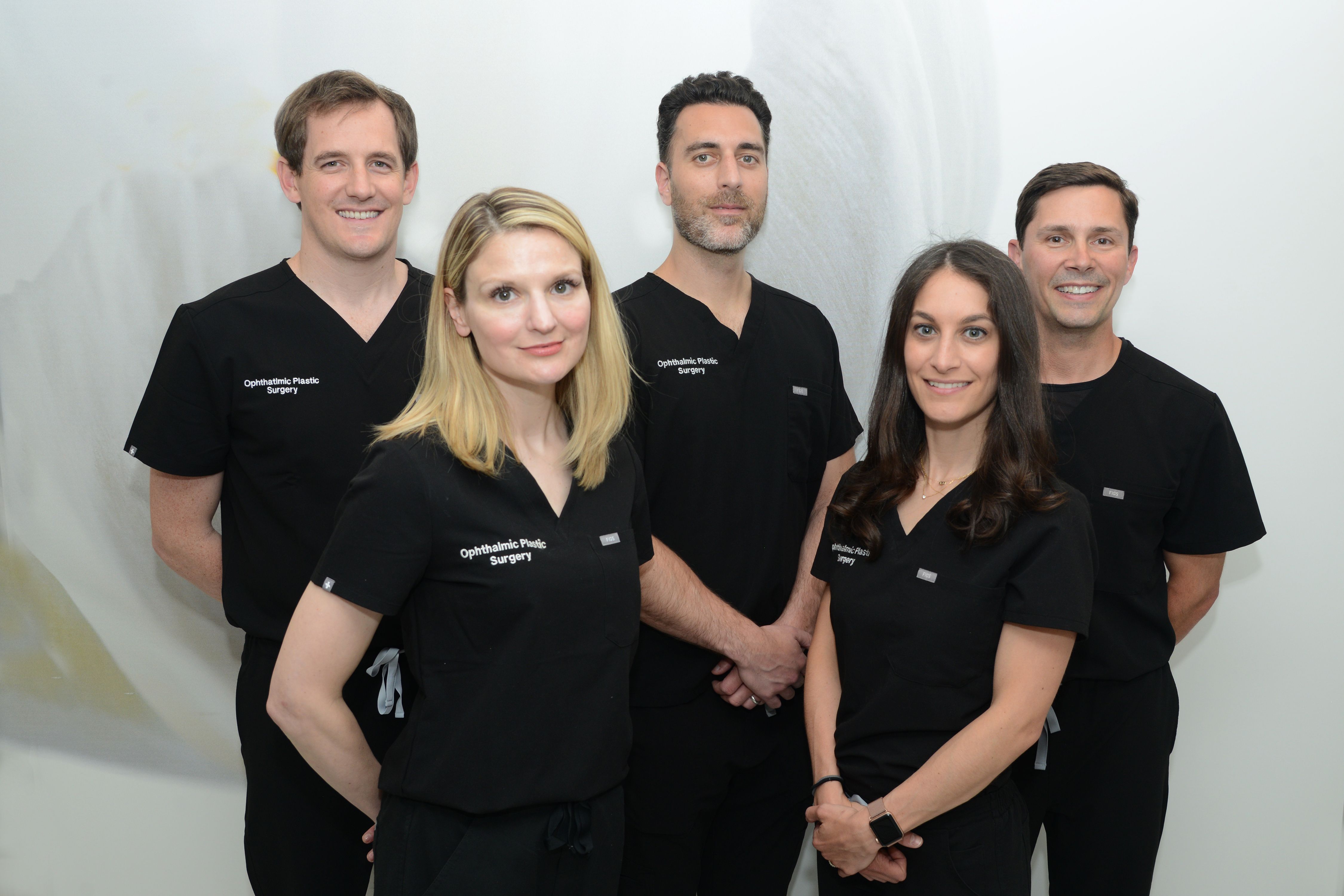
Cosmetic and reconstructive procedures that are performed on the eyelids, orbital sockets and lacrimal system are referred to as oculoplastic surgery. The small, highly specialized field of oculoplastic surgery combines the precision and microsurgery of ophthalmology with the aesthetic and reconstructive concepts of plastic surgery. Approximately 15 oculoplastic surgeons are trained per year through the American Society of Ophthalmic Plastic and Reconstructive Surgery (ASOPRS), with fellowships that involve two years of additional training beyond ophthalmology residency.
Weill Cornell Medicine oculoplastic surgeons provide evaluation and treatment for pediatric and adult diseases that affect the eyelids, orbital cavities and tear ducts. When necessary, we utilize a multidisciplinary approach that may include dermatologists, plastic surgeons, otolaryngologists, endocrinologists, radiologists, neurosurgeons and ocularists.
Weill Cornell Medicine physicians administer Botox produced exclusively by Allergan, the only legal and FDA-approved source for Botox in the United States.
Our Botox and other products are never over-diluted with saline solution, as over-dilution reduces treatment effects and shortens the effectiveness of treatment.
All treatments and procedures are performed by our board-certified physicians, who work with you directly to create a personalized treatment plan that addresses your cosmetic and medical needs.
Eyelid disorders we typically provide treatment for include:
- Ptosis (drooping eyelids).
- Congenital malformations.
- Trauma (lacerations).
- Tumors (skin cancer).
- Malpositions, including entropion (turned-in eyelid) and ectropion (turned-out eyelid).
- Styes (chalazia).
- Blepharospasm.
- Eyelash abnormalities.
Orbital processes we typically provide management for include:
- Thyroid (Graves') eye disease.
- Orbital inflammatory syndromes.
- Tumors.
- Fractures.
- Enucleation (removal of the eye) and care of the anophthalmic (eye) socket.
Lacrimal conditions we typically provide treatment for include:
- Nasolacrimal duct obstruction (blocked tear ducts).
- Punctal malposition or stenosis (abnormal tear drain).
- Lacrimal system trauma.
- Tumors.
- Unexplained tearing.
For information regarding any of the conditions above, refer to the American Academy of Ophthalmology Eye Health Library.
Cosmetic Oculoplastic Surgery
Our oculoplastic surgeons specialize in the comprehensive evaluation of cosmetic eye concerns and offer a variety of non-invasive, minimally invasive and surgical treatments for periocular rejuvenation. We take the utmost care to provide our patients with professional, confidential evaluations and individual treatment plans to achieve natural aesthetic results.
Typical reasons for cosmetic consultation include:
- Drooping or tired upper eyelids.
- Excess eyelid skin.
- Eyelid bags.
- Wrinkles.
- Post-cosmetic eyelid surgery complications.
Treatment Options
- Blepharoplasty
- Botox
- Eyelash enhancement (Latisse)
- Facial rejuvenation with fillers (i.e. Dysport, Restylane, Radiesse)
Related Physicians

- Assistant Professor, Assistant Attending Ophthalmologist, Residency Program Director

- Associate Professor, Associate Attending Physician

